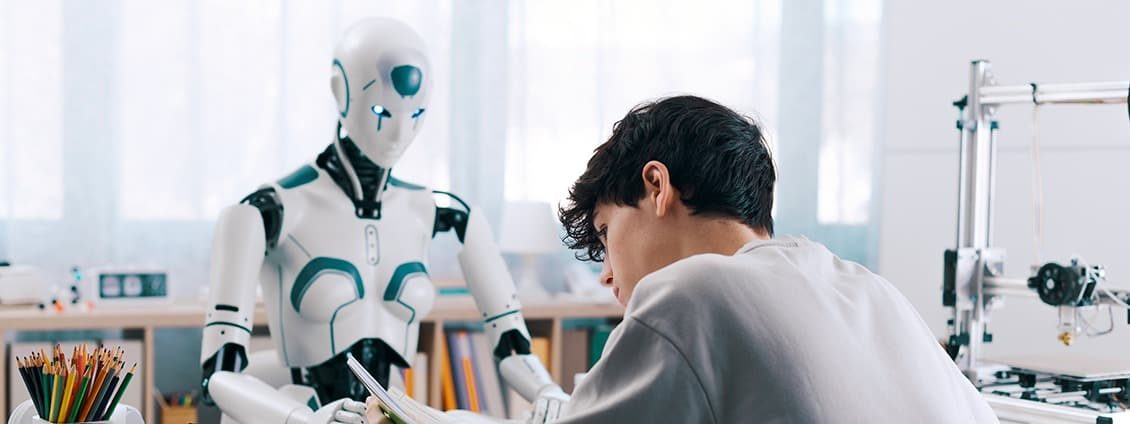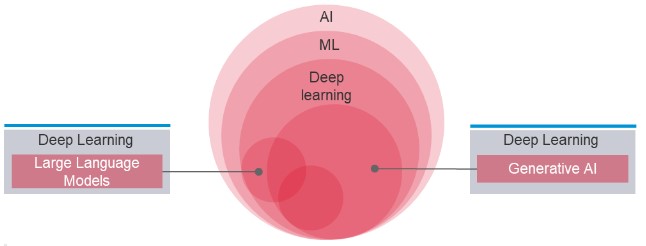- Solutions
Our solutions
Digital solutions combining strategy, technology, automation and people.
Technology advisory
Navigate the fast-changing world
Cloud engineering
Transformational change at scale and speed
Data solutions
Realise the untapped potential of data
AI and machine learning
Leverage your data assets
Application engineering
Optimise and grow your digital investment
Maintenance and support
End-to-end application management
Business process solutions
Manage business processes to reduce operating costs
Quality solutions
Independent testing for your systems and software
Digital experience platforms
Redesign your digital assets for the optimal customer experience
- Industries
Industries
We provide solutions tailored to your sector to assist you in identifying opportunities, realising value and opening up new markets.
Banking
Delivering next-gen banking solutions that drive growth
Healthcare
Patient empowerment, lifesciences, and pharma
Retail
Functional and emotional customer experiences online and in-store
Travel
Airlines, online travel giants, niche disruptors
Media and publishing
Content consumption for the tech-driven audience
Hi-tech and IOT
Real-time information and operational agility and flexibility to respond to market changes
Logistics and supply chain
Reimagine a supply chain that is more flexible and resilient to change
Education
Create an exciting and engaging digital experience for students and departments
Insurance
Streamline operations, expedite claims, and unlock new possibilities
- Our thinking
Our thinking
The latest updates to help future-focused organisations on the issues that matter most in business.
News
Keep up to date with company news and announcements at NashTech
Insights
The latest expertise and thought leadership from the NashTech and our clients
Resources
Expert guidance on everything from complex technological issues to current trends
Digital Leadership Report
Explore insights from the latest world's largest and longest-running study on technology leadership
- Case studies
- About us
About us
Find out what makes us who we are
Leadership
The diverse leadership team at NashTech
Nash Squared
A global professional services organisation with three key areas of focus
Vietnam 360°
Experience a 360 degree all-encompassing virtual tour of NashTech’s Vietnam offices
ESG
Discover our environmental, social and governance commitments
Diversity, equality and inclusion
Making diversity, equality and inclusion an integral part of our culture
Our locations
Discover our network of global offices, centres of excellence and innovation
- English
Why not to be afraid of AI and rather take charge of where its usage is going!

61% of adults in the US are afraid of artificial intelligence (AI)! 42% of surveyed attendees at the Yale CEO summit believe AI could destroy humanity in the near future.
The attention-grabbing headlines stating AI will replace jobs, or take over humanity in some sort or another, are relentless. But are they based on fact or is it simply a marketing trick to rack up the clicks and drive fear towards a technology that has already been around for a while (whether you have noticed it or not, and well before ChatGPT made the headlines!) and has the potential to make fundamental shifts to our society.
Yes, there are risks associated with this technology, and so have been with all technologies we have witnessed having entered our life, but we as society can together decide where AI will go. Let’s think outside the headline box and think big about how AI can serve humanity for the better.
Understanding AI and machine learning (ML)
AI is not new. It has been around for a while and its father, Alan Turing, who, in 1935 (almost 90 years ago!), for the first time described a self-modifying and self-improving program that learns from experience. In 1947, he talked about computer intelligence in possibly the first public lecture on this topic in the world. AI has come a long way since and entered our daily lives long ago.

Machine learning (ML), a subset of AI is all about identifying patterns through a massive amount of data points, impossible for a human brain to process as quickly and accurately as the machine. ML is applied in many areas of day-to-day life.
Let’s looks at music apps as an example, by clicking on a recommendation, or even rating a listened/watched recommendation, you are giving data points which are used to further finetune the ML algorithm which, in turn, will mean better matching suggestions for you! Saves you a lot of time, doesn’t it? Learn more about ML here.
More surprisingly is that AI has now the capability to generate new content. You could use an app to have your resignation letter written for you. The app will give you a great letter which you can tune to the tone you’d like to use. But how generative is this really? As a human, you have learned how to write and make sense of sentences and paragraphs, delivering your points through experience and reference.
So does AI.
Every time you use an AI tool, you educate the program a little more. And those programs still have a lot to learn!
Cast your fear away: AI is here to help, not to harm!
If you are afraid that AI will become human-like and turn against us (hello, Terminator!), maybe we just need to become better role models because AI learns from us, and we decide how and where it is going to be used.
So, let’s not get caught up in dramatic headlines and sci-fi movies and rather learn how we can best use AI as a tool to propel our society.
What if…?
… there were applications where AI has been very supportive for a while now. For example, medical examinations where the algorithm can predict colon cancer (see our case study with CHI) faster and with a much higher accuracy as human doctors.
Does that replace the doctor? No! It frees up the doctor’s job to focus on other high value tasks like having more time for those sensitive conversations that need to be held with patients and/or being able to see more patients while still providing reliable diagnosis every time.
… AI can help research institutions to analyse, compare, and join together dots and findings of various research papers, laboratory reports, medical information, chemistry data, pharmacology knowledge, and other areas of speciality to support researchers in finding the next key ingredient for a new drug to treat a disease? Well, speeding up that lengthy research process is already reality for Elseiver.
… an AI lawyer for example can go through stacks of law books and cases very quickly to come to a conclusion or multiple conclusions for a case? How about instead of taking this outcome as the decision for the case and instead as a question for humans to discuss whether that outcome is really the outcome we would want it to be? Is it fair? Does it reflect human values that we want to cherish? Maybe the stacks of law books are outdated, and some laws need to be refreshed, amended, removed to reflect where we as society want to be. It would take many humans and years to work through the ever-growing web of laws, legislation, and regulations. We humans have created this complexity and maybe it needs AI to simplify it again and point out areas of concern.
- Or the outcome can point out where the law contradicts each other and that can be the base for another improvement.
- Or such an AI lawyer can point out where the current law practices have loopholes and should require new legislation.
- Or such an AI lawyer can work through hundreds of pages of new legislation to support negotiations like treaties (or Brexit scenarios) to analyse the impact of such paperwork before it is signed. It can also be used to summarise the content of such massive papers for the average person to understand what it means and what the impact can be to them.
If the AI lawyer would be used as above, it is an assistance to current lawyers and society while yes, lawyers’ job profile and responsibilities may shift, but it is not replacing lawyers.
Maybe with that assistance it brings lawyers back to focus on why most of them became lawyers in the first instance: to fight for fairness and justice in society. How many more cases could be completed within the same time as one case needs at the moment if we had useful AI assistance? How much more justice could be brought to us? How much more trust into the currently broken and overloaded legal system could be re-established? And no, I am not talking about anything similar to the Minority Report movie!
… a generative AI tool can help us re-discover our spark of inspiration. Instead of just using it to submit the next (annoying) paper at university, maybe it can re-connect us with the power of words. Always being short on time and needing to be more efficient, maybe this has taken away the average person’s ability/time to write beautifully, to create art, to paint a picture, etc. AI doesn’t put limits on itself like humans do, so why not get inspired by AI and unlimit yourself? Use your gifts (beyond the mind).
… AI can remove many/all of those energy consuming, brain-wrenching, annoying tasks from several areas of our life?
Yes, life would be different, but does that automatically mean it must be worse and humans will go extinct? No! How about this change gives us the opportunity to re-prioritise what makes us human? Is it really your job? How often are you complaining about it? How often do you wish you had more time for your family? Your hobbies? Travel? Sleep? Relaxation? Here is a possible part of the solution to make things better as you have asked for but you are afraid of it. Why? Technology in itself is neutral. It’s its usage that makes it either supportive to humans or creating damage to ourselves. And we decide about its usage, not AI.
… we could use AI in a way to take away the burdens we have created for ourselves in the way society operates at the moment and free up space for us to become more human? To connect more with our body again instead of always being in our mind. Re-connecting with our heart, emotions, livelihoods, joy, creativity, our power to create something new instead of just working through a list of tasks? Get out of the constant work stress (and anxiety for many) and calm our nervous system which will surely positively impact our health as well. How about AI can assist us in creating a healthier society over time?
Dare to…
… appreciate that new technology will require new skills to build it, use it, train it and on it, and to maintain it etc and that you can learn those skills as well as learn how AI works.
… embrace change. AI will further change how we work as a society just as the steam engine, electricity, fax, phones, computers, internet, laptops, smart phones, etc. have. And there will be other life changing technologies come further in the future.
… dream how we can use AI to better how society operates!
If you have a (dream) idea but don’t quite know how to approach it and/or if it is feasible at all, reach out to our team to have a chat about it.
Suggested articles

The art of human-AI collaboration: A case study in model improvement
For over 16 years, NashTech has been a trusted partner, providing data management solutions that have fuelled the exponential growth of our client’s online shopping platform. The approach has...

From rising above adversity to riding the wave of digital transformation in the education sector
Explore how NashTech help Trinity College London ride the wave of digital transformation in the education sector

Migrating and modernising the virtual learning environment to AWS for an enhanced experience
The migrated and modernised Moodle infrastructure means that The Open University can now take advantage of cloud benefits.
We help you understand your technology journey, navigate the complex world of data, digitise business process or provide a seamless user experience
- Topics:


